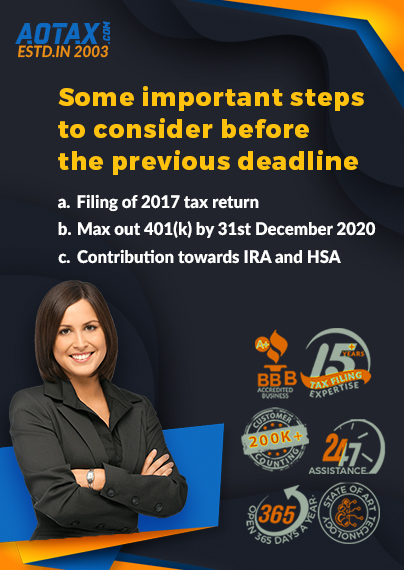
As an NRI in the US, can you claim a Tax Deduction for your Health Insurance?
As an NRI in the US, can you claim a Tax Deduction for your Health Insurance?
In today’s times, health insurance has become a basic necessity of life. With the spread of dreadful diseases across the world and the cost of medical facilities soaring high, health insurance is a must for every individual. By a health insurance policy, the insurance provider would meet the medical expenses that are incurred during any type of treatment undergone by the health insurance policyholder. For availing this, the policyholder will have to pay the health insurance premium regularly. As an NRI in the US, can you claim a Tax Deduction for your Health Insurance.
NRIs who are living in the US and are working sought to purchase health insurance to avoid any financial emergencies at the times of medical emergencies.
NRIs enrolled in an employer-sponsored health insurance plan

- When an NRI in the US has taken a health insurance plan which is sponsored by his employer then the premiums which are paid for the health insurance plan are already tax-free. However, if the premiums for the health insurance plan are made by a payroll deduction plan and the premium payment is done by pre-tax dollars then a tax deduction cannot be availed.
- Payroll deduction plans are those in which the employers of the NRIs withhold money from their paychecks for the benefits. These plans can include those for Medical insurance, life insurance premium, and retirement savings, other taxes, etc.
Tax deductions for unreimbursed expenses of NRIs

- In the case of NRIs purchasing their health insurance on their own by using after-tax dollars, some tax deductions can be done on the health insurance premiums.
- In the year 2019, NRIs would be allowed to deduct any qualified unreimbursed health care expenses that they have paid for themselves, their spouses, or dependents if the expenses exceeded 10% of their AGI (Adjusted Gross Income).
- However, in the year 2017 and 2018 if the healthcare expenses were more than 7.5% of the AGI of the NRI then it would qualify for a tax deduction.
- Apart from the health insurance premium, other expenses which can be included in this category by the NRIs are any expenses which are out-of-the-pocket such as expenses involved in surgeries, doctor’s visit, mental health care, vision care, etc.
- If an NRI is interested in making deductions for the medical expenses it is advisable to itemize the deductions. The NRI must ensure that his total itemized deductions would exceed the standard deduction amount.
Tax deductions for self-employed NRIs

- For self-employed NRIs living in the US, the entire health insurance premium can be claimed as a tax deduction. This deduction claimed by self-employed NRIs can be said to be a write-off to their personal income tax and will not be deducted when the NRIs are filing on the behalf of any of their businesses. For instance, a sole proprietor must enter the deduction amount in Form 1040 and not in the Schedule C Form.
- But, if an NRI is self-employed and also has another job at the same time then he can preclude from this tax deduction.
- If a self-employed NRI receives health insurance coverage through his spouse’s health insurance plan which is employer-sponsored, then he can also preclude himself from the tax deduction that can be availed by self-employed NRIs.
- Self-employed NRIs are not eligible to claim more deduction than the amount of income they are making through their work.
- Self-employed NRIs can choose any one of their businesses as the sponsor for their health insurance plan. It is not permissible for self-employed NRIs to add up their income generated by different companies to claim the maximum deduction. So, it would be wiser if a self-employed NRI would choose his most profit earning business as the sponsor for his health insurance plan.
Reducing of tax bills by NRIs

If an NRI does not qualify to make tax deductions for his health insurance either because of the cost threshold or due to the choice of taking the standard deduction, then he can choose another alternative method for reducing his tax bills.
By electing an HDHP i.e. high-deductible health plan, NRIs can avail the benefits of paying less premium for health insurance plans than normal plans. Through this, NRIs would be able to open a Health Savings Account (HSA). The money which is put into the HSA can be utilized for paying off the health care expenses which are out-of-pocket. The contributions made by an NRI towards the HSA are tax-deductible and when these are used for eligible expenses the withdrawals also become free. In some cases, the health insurance premium can be paid off by using the funds in the HSA.
However, HDHP can offer tax benefits to the NRIs but they are only advisable for the younger masses that do not need health care cover except some health emergency. It is not advisable for those masses that already have pre-existing health issues or are expecting health expenses shortly.
Hence, tax deduction by NRIs for health insurance can be made by thinking wisely and by taking into account the major criterion such as the type of employment and type of health care expenses incurred by the NRIs.
References
- https://www.investopedia.com/are-health-insurance-premiums-tax-deductible-4773286
- https://www.investopedia.com/health-insurance-premium-4773146
- https://www.investopedia.com/terms/p/payroll-deduction-plan.asp










Recent Comments